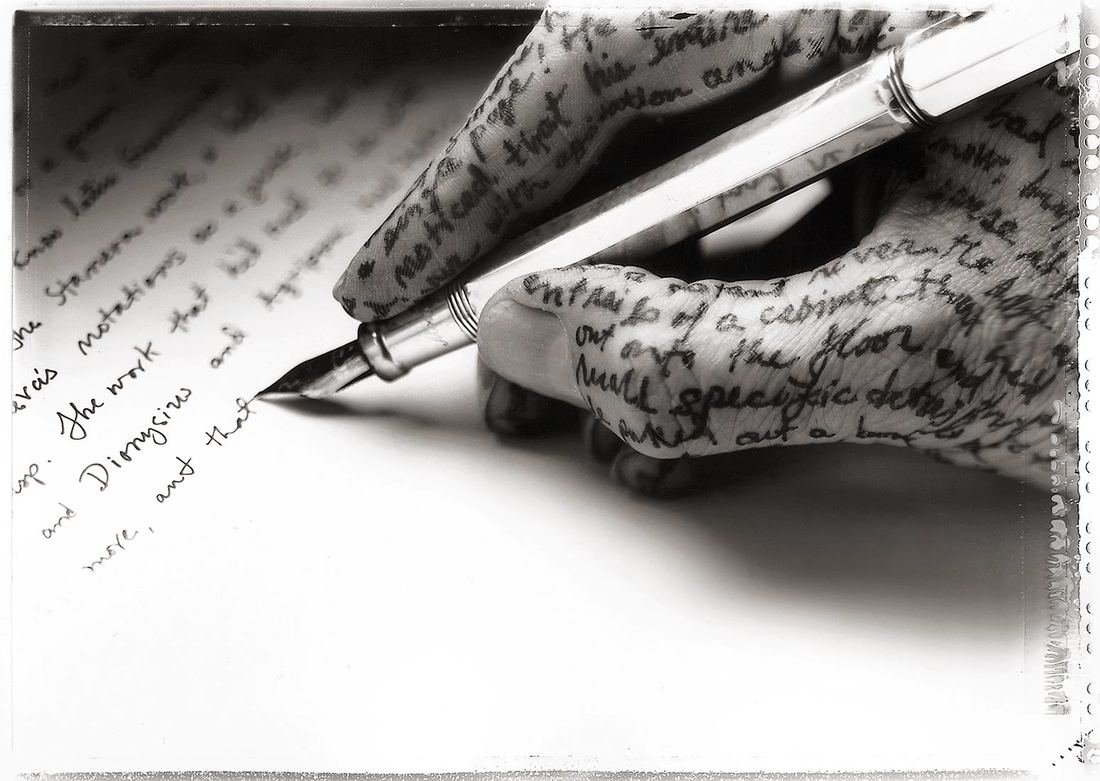 ”There is nothing to writing. All you do is sit down at a typewriter and bleed.” - Ernest Hemingway When we think in terms of “depth” in writing, I suspect we conjure up the image of the serious literary author, all cigarettes and Starbucks writing while he troubles himself over every small metaphor, hoping to convey the most complex ideas and symbolism in the fewest words. We might also conjure up the busy academic, fussing over the truth in a thesis and importance of every single cited quote. This is about where the world scoffs: “Depth is for nerds. Depth is too serious. That’s why I don’t write that way…” I speak in hyperbole, but I know more than my fair share of writers who reject the idea of depth, usually on one or two reasons. A) “Depth is equal to elitism,” and the above examples prove that much. We are in an age with elite behavior and cultured ideals are seen as too big for their own britches- a representation of a snobbish culture that we no longer embrace, especially when it comes to American points of view. B) is a bit less cultural though: “Depth is unneeded for writing general fiction.” There is a line of thinking in writing circles that depth is a distraction to readers, perhaps accredited to the idea of “purple prose” or overwriting, we try to trim the fat, making things easy to digest and quick to thumb through. We draft in quick, numbered strokes, planning the novel that Writer’s Digest swears that everyone wants to read. In the name of good writing advice, we assure that reading is solely built for entertainment. Because that is all that writing should be, yes? So, let’s first dispel with a myth: depth is not a synonym for elitism. Depth is not a thing we aspire for when we attempt to sound intelligent, not in its true form. Depth is the thing we touch upon when we, as readers or writers, reach beyond the surface of a novel’s idea. Depth to the novel is a layered cake to the baker, and just like any good cake (in my opinion- I’m from Louisiana where we have our own complex cultural rules about food), you should be able to cut into that bad boy for surprises. Fillings, flavor, the odd plastic baby! What makes something truly good is not its surface attractiveness, but the ingredients and work that went into its making. It’s the difference between a candy-colored Walmart cake and a homemade one, and it means the world to the average reader. I speak from experience. It was a breath of fresh air with I met NYT bestselling author, Joshilyn Jackson, at a conference last weekend. During her panel on writing alone and working with author communities, she gave some sound advice to this topic. “If you’re writing something, unless it bleeds when you cut into it, it’s gonna sound flat. Unless there is something of you in there, it won’t sound honest.” This struck me in a deep way, the idea that so much of yourself is associated with depth in writing. To write with your heart open. I had written like this before, but found myself discouraged from it after a few books. It wasn’t “fun writing” like my peers were doing. No, it was made of the emotional turmoil of late-night research, of scenes so brutally truthful that I’d sobbed over my own words. It was the evocative energy that encouraged me to dig deeper on a scene or five, simply because I knew I could do better. It was filling whole pages of a notebook with character notes as I tried to pin down my protagonist’s true motivation, the one that he bled for in the corners of his soul. These are moments I don’t forgot about from writing my first and second novel, and I watched them shape something about me as a writer. As the book grew deeper, I learned more about the person writing it, and who she really was behind her fantasy and monsters. And that is the really scary part about honest, in-depth writing; the truths that showcase us to the rest of the world. The characters that reflect something dark about us, or our lives. The stripped form of the author’s soul, shimmering through their ink. The stuff that hurts this way, ironically, is usually what deserves the most sunlight. It will starve in the wake of exposure, and personally gave me the space to heal once I’d finished sharing it. I was a better me in the wake of exploration, and the book was better for my efforts. We jilt “depth” in writing as a passe concept and an unfun, too-serious way of creating. But is creation anything without a life to support it? Is depth truly something we have no time for when passion is the very thing that drives fiction- good fiction into existence? And do we truly fear depth because the audience rejects it, or do we imagine rather, that the audience will reject what is real about us? Perhaps, most of all, our rejection of depth is about what depth will make us examine when we visit it between pages.
0 Comments
|
About MeCaitlin Jones is an author, film editor, and lover of all things Victorian and fantastic. Please check in for information on her upcoming series. Archives
August 2020
|
 RSS Feed
RSS Feed
